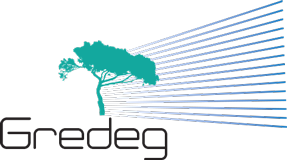|
|
|
Call for papersContributions will be selected from extended abstracts in English of 750 to 1000 words, or full-paper proposals of up to 7500 words. The submission deadline is June 12th, 2016. Abstract must be sent, together with a CV, and a letter of recommendation from a supervisor, to summerschool19@unice.fr . Applications not including all of the required documents – abstract or full paper in English, application form, CV, and a letter of recommendation – will not be taken into consideration. Participants are expected to make their own travel arrangements and pay their travel costs. The registration fee is 150€. Registration fees include accommodation (6 nights, check-in September 4th, check-out September 10th), materials, daily breakfast and lunch and participation to the leisure program. By the end of-June 2016, the Scientific Committee will inform all the applicants about the outcome of the selection process.
Deadline for abstract submissions: June 12th, 2016. Abstracts must be sent to Richard Arena and Muriel Dal Pont at : summerschool19@unice.fr Summer School Topic “Radical changes and transitions: economics and its relations with other disciplines"
History of economic thought tells us how and why, since the end of the XIXth century, economists are confronted to permanent difficulties when they try to understand and explain economic change. The analytical influence of the general equilibrium theory research program the origin of which is attributed to Léon Walras and Vilfredo Pareto was not only substantial in the realm of the theory of the formation of prices but also and more indirectly in the field of economic dynamics. In this latter field, theoreticians created three sets of tools which they tried to make compatible with what they identified to the legacy of the Lausanne School. Thus since Frisch’s contribution and later, business cycle theory has been considered as an approach which tried to interpret economic fluctuations to transitory deviances from a regular growth path disturbed by stochastic shocks. Economic growth theory has been based on the assumed existence of a long run growth path and to-day even economists who are presently investigating structural dynamics phenomena are doing it in a Solovian perspective. Very often at last, the theory of economic development was in line with usual economic dynamics, just adding to its social and institutional change, as it is the case to-day with Acemoglu’s contribution to macrodynamics. If the trilogy of tools provided by traditional economics was very useful to permit us to understand some aspects of economic change, it did not allow however to understand and explain major economic changes affecting suddenly and even brutally all or a part of the economic global structures, whether they concern the organization of production, whether they are related to the types of utilized technologies or whether they fall within the monetary and/or financial organization of the economy. This was the main reason why we decided to dedicate a specific session of our School ‘History of Economic Thought, Economic Philosophy and Economic History‘ to the theoretical approaches which to-day as yesterday within the field of history of economic thought tried to provide a all-embracing type of explanation ready if necessary to modify the border of economics as such. We may take as examples historical, economic and social of phenomena such as the Industrial Revolution; the emergence, extension, reinforcement and decline of the Welfare State; the Great Crisis, or to-day the so-called Digital Revolution or the economic effects of climatic change. The approaches we will consider are characterized by a critical investigation of the tripartite division of economic dynamics we referred to but also by their ability to relate the observed and analyzed economic changes to the evolution of the methods and history of economic analysis. Thus, these changes also very often imply a redefinition of the borders of economic analysis as such, a reconsideration of its foundations and new reflections on inter-disciplinarity. Borders between economics and close social sciences have often been redrafted within this context. Changes which affect the productive, technological, monetary or financial organization of an economy exclude the possibility of existence of a conception of economic analysis as a self-contained or closed system. They necessarily imply the introduction of new relations between with disciplines such as sociology, social psychology, political science, law or some other fields which do not belong to the set of social sciences. The annual 2016 session of the School ‘History of Economic Thought, Economic Philosophy and Economic History‘ will therefore be partly devoted to some conferences which will introduce and emphasize this different approach to economic change and of its consequences it generated on the evolution of the contents and objectives of economic theory. Obviously, as it has always be the case for the different past sessions of the previous years of the School, it will also allow PHD students to benefit from specific sessions dedicated to the presentation, the assessment and a discussion of the present state of their work; and also tutoring exchanges with the various conferenced speakers and the members of the Scientific Board of the School. |


